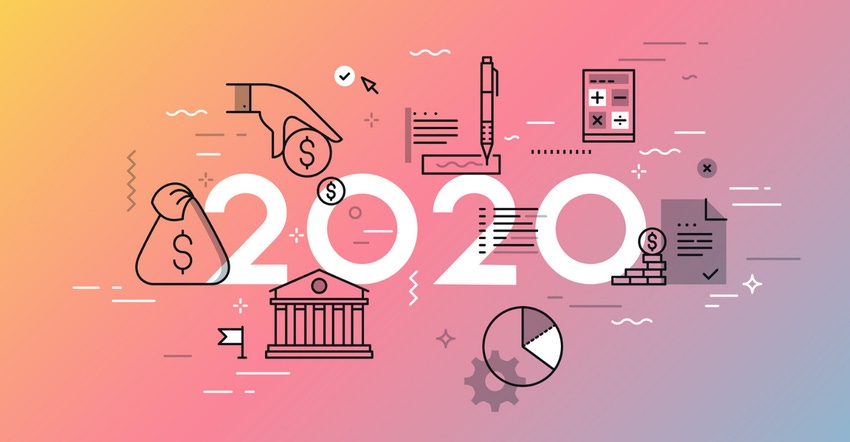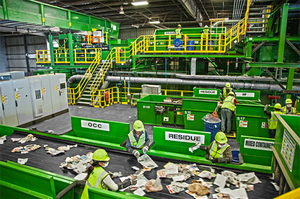
Despite the recent shaky economic ride, many of you have asked how the waste, recycling and organics industry will fare for the remainder of the year.
To get answers, Waste360 caught up with Hamzah Mazari, managing director at Jeffries to discuss what the second half of 2020 could bring.
Waste360: What are your thoughts about the industry coming out of COVID-19?
We think pricing for the waste space will continue to hold up pretty well despite COVID-19 given greater industry discipline and inflation that has not yet decelerated materially. The key will be how the commercial volume recovery takes shape and how quickly the U.S. consumer comes back. We all know the industry called April as a bottom in overall volumes but the shape of the recovery remains in question.
Waste360: Do you think the second half of the year will be strong? Or take a while to catch up?
So far and it is early, it appears the consumer is coming back given stimulus, a higher savings rate which could mean more spending and some people likely being fed up being at home (looking to get out). We did a survey of 1500 U.S. consumers on their medium-term intentions and also looked at 40mm panel looking at cell phone data to track movements. Our alternative data shows that ~65 percent of people are now leaving home post-COVID with fast food restaurants back to COVID levels while full-service restaurants and clothing 30 percent below pre-COVID levels.
The bottom line is we are seeing more rational consumer behavior. Our economist expects a Nike swoosh sign type recovery. Also 1/3 of businesses have now opened back up and small businesses have liquidity through July due to stimulus. Therefore, we are expecting gradual growth in the second half of the year from an April bottom on a sequential basis.
Waste360: Was the waste and recycling industry hit harder than you thought it would be?
We had put out our commercial survey which suggested that we thought commercial volume would be down ~15 percent. Some companies were in that range while some were better (WCN, CWST as examples). On balance, it was harder hit for some and less hit for others. The overall absolute downdraft in commercial was in line but the extent of the declines stabilizing happened quicker than expected.
Waste360: Will the commercial side see major closures or additional risk? Can the industry mitigate it?
Customer churn in this space is half related to bankruptcies or closures. So far bankruptcies have been limited and not like we saw in 2009 due to government stimulus. Our checks suggest small businesses have until sometime in July before liquidity runs out so if the consumer can slowly come back as states reopen, there is not material additional risk.
Another COVID-19 outbreak or another lockdown serve as key risks we are monitoring as well as if the consumer freezes up which seems unlikely given the May retail sales figure was better than expected this week. We are also seeing new business applications uptick which could also backfill any closures which is something to track.
Waste360: What indicators are you seeing and what are you watching to monitor this?
We have survey work we do on the U.S. consumer monthly as well as geolocational data we monitor which are proprietary data sets aside from the regular economic data on jobs numbers, personal consumption, construction , housing starts among others that everyone tracks. We also are in close contact with the rest of the Jefferies teams as well as our institutional clients and corporates on what they are hearing and seeing which keeps us close to what is going on.
Waste360: Will M&A activity in this space heat back up?
With the federal election (potential tax changes) and also waste sector balance sheets in good shape M&A is likely to heat back up. COVID-19 resulted in a push out by ~2 months but deal flow is expected to pick up.
Waste360: What will make you confident that the sector has recovered?
Commercial volume sequential recovery and visibility around when we get back to pre- COVID-19 levels and continued pricing discipline.
Waste360: Do you think any business models will change as a result of the pandemic? (considering the hit commercial took, how residential blew up, etc.)
You could see a change in how the municipal residential business works potentially – although it will be a very slow process. Specifically, what we mean is having contracts allow for greater cost recovery on higher waste volume (currently the business is less volume centric and more fixed fee). Especially if the work from home dynamic continues on a structural basis, some changes may be required around how residential business operates.
Waste360: Have any crystal ball predictions or hopes?
Expect further consolidation in the space.
Expect continued price discipline.
Expect further push on technology.
The U.S. consumer in past cycles has been more resilient than many think.
Munis are tough to deal with – don’t hope for too much on the residential side.
Recycling is getting better at the margin after a long recession in that segment.
About the Author(s)
You May Also Like




